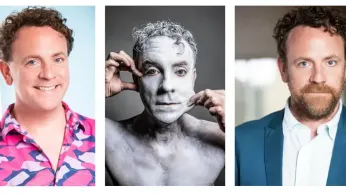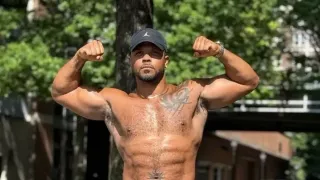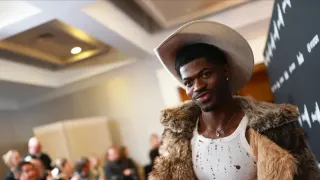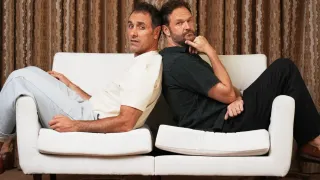
2 hours ago
Drew Droege Shines: From Viral Comedy to Queer Theater’s Leading Light
READ TIME: 3 MIN.
Drew Droege has emerged as a vital presence in contemporary LGBTQ+ entertainment, known for blending incisive humor with heartfelt truth across multiple platforms. Born in Columbia, South Carolina, and raised in Lincolnton, North Carolina, Droege’s journey from the American South to the national stage is marked by a dedication to visibility, authenticity, and queer joy .
After earning his BA in Theatre and English at Wake Forest University, Droege moved to Los Angeles, where he honed his craft with the legendary improv troupe The Groundlings—an incubator for some of comedy’s most influential voices . He is also an alumnus of the Upright Citizens Brigade, further anchoring his reputation as a master of character-driven comedy .
Many first encountered Droege through his viral online videos parodying downtown indie icon Chloë Sevigny, which were spotlighted by major outlets including Entertainment Weekly, The Advocate, and TimeOut New York . These parodies—sharp, loving, and irreverently queer—cemented his reputation as a digital-era trailblazer for LGBTQ+ comedy.
But Droege’s talents extend far beyond the internet. He has written and performed five solo shows, among them "Bright Colors and Bold Patterns" (Off-Broadway, Soho Playhouse 2017–2018, directed by Michael Urie) and "Happy Birthday Doug" (Off-Broadway, Soho Playhouse 2020, directed by Tom DeTrinis) . "Bright Colors and Bold Patterns," in particular, was lauded for its raw exploration of gay identity and was captured by BroadwayHD, earning Droege the Outstanding Performance award at Outfest Los Angeles in 2018 .
Droege’s work spans film, television, and stage, with over 220 acting credits listed on IMDb. His film roles include appearances in "Scouts Guide to the Zombie Apocalypse" (2015), "Masc Only" (2016), and "The Circle" (2017) . On stage, he has performed in Charles Busch’s "Die, Mommie, Die!", Justin Sayre’s "Ravenswood Manor," and musical parodies like "Troop Beverly Hills" and "The Devil Wears Prada" .
He is also the voice of Feathers in the beloved online cartoon "Planet Unicorn," which won the OMFG Internet Award at Logo’s 2008 NewNowNext Awards .
Beyond performance, Droege has contributed as a writer and director, working with sketch groups like The Deviants and hosting podcasts—including "Glitter in the Garbage" for Earwolf and “Drew Droege’s Minor Revelations” .
Droege’s contributions to queer theater and comedy have been recognized with several awards, including the 2010 Emerging Talent Award at Outfest Film Festival in Los Angeles and multiple StageSceneLA honors for both acting and directing .
He is widely respected not only for his comedic skill but also for his commitment to LGBTQ+ representation. Through his solo shows, ensemble performances, and online content, Droege foregrounds LGBTQ+ experiences with humor that is as challenging as it is celebratory. His work continues to inspire younger artists to embrace their identities and tell their own stories on their own terms .
As Drew Droege joins the cast and creative team of "Messy White Gays" in New York City, he brings a wealth of experience and a legacy of boundary-pushing queer artistry to the stage. The play, set to open to great anticipation, promises to be another important chapter in a career defined by laughter, insight, and unapologetic authenticity.
For Droege, every project is an opportunity to expand the conversation around LGBTQ+ lives in the arts. "Messy White Gays" is poised to further cement his status as one of the most vital and versatile voices in queer entertainment today.






